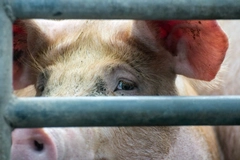
- Industry news
Industry news
- Category news
Category news
- Reports
- Key trends
- Multimedia
- Journal
- Events
- Suppliers
- Home
- Industry news
Industry news
- Category news
Category news
- Reports
- Key trends
- Multimedia
- Events
- Suppliers
Ajinomoto Submits Novel Food Application for Capsinoid Product

Dihydrocapsiate is a capsinoid and occurs naturally in edible pungent (hot) and non-pungent chilli peppers. The applicant states that capsinoids are able to enhance energy expenditure and fat oxidation.

Sep 2 2010 --- Ajinomoto Co., Inc., Japan has applied to the UK Food Standards Agency (FSA) for the authorisation of dihydrocapsiate under the Novel Food Regulation (EC) 258/97. Dihydrocapsiate is a capsinoid and occurs naturally in edible pungent (hot) and non-pungent chilli peppers. The applicant states that capsinoids are able to enhance energy expenditure and fat oxidation. Capsinoids are chemical analogues of capsaicin which is the hot component creating the sensation of “hotness” in chilli peppers, while capsinoids are virtually non-pungent.
Sourcing of large quantities of dihydrocapsiate from chilli peppers is not sustainable because of the relatively small amounts that are contained in and can be extracted from chilli peppers. Ajinomoto therefore intends to produce dihydrocapsiate synthetically to be added to a range of foods.
According to the Ajinomoto application, the long history of use of chilli peppers coupled with the extensive toxicology, toxicokinetics and human volunteer studies supports the safety of DHC as a novel food ingredient for the European Community. The substance was granted GRAS status for use at 1 and 3 mg standard serving in the USA, in 2009 and 2010 respectively. “Based on the exposure assessment resulting from anticipated use, and taking into account the safety data, it is concluded that DHC does not represent a significant risk for human health at the proposed intake level, resulting from its intended use in food,” the application reads.
Meanwhile a Russian company has applied to the FSA for approval to market taxifolin as a novel food ingredient.
Taxifolin is extracted from a type of larch wood and has been marketed in Russia and the US for 15-20 years as a food supplement. The company, Ametis JSG, is seeking an authorisation to market taxifolin as a dietary supplement in dairy, meat and confectionery products, as well as in oil and fats, and alcoholic and non-alcoholic beverages.
A novel food is a food or food ingredient that does not have a significant history of consumption within the European Union before 15 May 1997. Before any new food product can be introduced on the European market, it must be rigorously assessed for safety. In the UK, the assessment of novel foods is carried out by an independent committee of scientists appointed by the Food Standards Agency, the Advisory Committee on Novel Foods and Processes (ACNFP).
Any comments on this application should be sent to the ACNFP Secretariat by 22 September and will be passed to the Committee before it finalises its opinion on this novel food ingredient.
All the views/comments received by the Agency will be made available for public examination. If you would prefer your comments NOT to be made publicly available, please indicate this by fully completing and returning the data protection form (attached below) together with your response.










